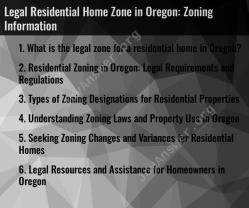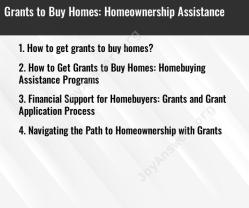Are interest only mortgage payments a good idea?
Interest-only mortgage payments can be a suitable option for certain individuals, depending on their financial situation and goals. However, like any financial product, interest-only mortgages come with both pros and cons. It's essential to carefully consider your circumstances and objectives before deciding if this type of mortgage is the right fit for you. Here are some pros and cons to help you navigate interest-only mortgage payments:
Pros:
Lower Initial Payments: One of the main advantages of interest-only mortgages is that they offer lower monthly payments during the initial period compared to traditional mortgages. This can be beneficial for individuals who need more flexibility in their budget.
Potential for Higher Returns: Borrowers may choose interest-only mortgages if they believe they can invest the money they save on monthly payments elsewhere and generate a higher return. This is especially true if they expect the value of their property to appreciate over time.
Cash Flow Flexibility: Interest-only payments provide borrowers with more cash flow flexibility, allowing them to allocate funds to other investments, debt repayment, or expenses.
Ideal for Short-Term Ownership: If you plan to own the property for a short period, an interest-only mortgage can be a cost-effective solution, as it provides lower payments during the initial years.
Cons:
Balloon Payments: In some cases, interest-only mortgages may have a balloon payment at the end of the interest-only period. This means that borrowers must pay off the entire loan balance or refinance, potentially leading to financial challenges if property values decrease or if the borrower's financial situation changes.
No Equity Build-Up: During the interest-only period, you're not paying down the principal balance of the loan, which means you're not building equity in your property. This could be a significant drawback if property values decline or if you plan to stay in the home long-term.
Interest Rate Risk: If interest rates rise after the interest-only period, your monthly payments could increase significantly when the loan converts to principal and interest payments.
Market Dependent Returns: The strategy of investing the saved money from lower payments in other ventures relies on those investments generating positive returns. If the investments do not perform well, the borrower may not benefit as expected.
Not Suitable for Everyone: Interest-only mortgages are not suitable for all borrowers. They are often more appropriate for financially savvy individuals who understand the risks and have a well-thought-out financial plan.
Before opting for an interest-only mortgage, it's crucial to thoroughly evaluate your financial situation, future plans, and risk tolerance. Consulting with a financial advisor or mortgage professional can help you make an informed decision based on your specific circumstances.
Interest-Only Mortgages: Weighing the Pros and Cons
1. Prudence of Interest-Only Payments:
Generally, interest-only mortgage payments are not considered a prudent financial strategy for most homeowners. While they offer lower payments initially, this comes at the cost of accumulating no equity in the property and potentially facing significantly higher payments later. Unless you have a clear plan for addressing these drawbacks, a traditional amortizing mortgage is typically a safer and more sustainable option.
2. How They Work:
- Lower Initial Payments: You only pay the accrued interest on the loan amount for a set period (typically 5-10 years). This leads to lower monthly payments compared to a traditional mortgage.
- No Equity Buildup: During the interest-only period, your loan balance remains unchanged, meaning you don't build equity in your home.
- Increased Payments Later: After the interest-only period ends, your payments rise significantly as you start repaying both principal and interest in a shorter remaining timeframe.
3. Potential Advantages:
- Frees Up Cash Flow: Lower initial payments can be helpful for achieving short-term financial goals like investing, education, or business development.
- Suitable for Short-Term Plans: If you plan to sell the property within the interest-only period, you can avoid building equity you won't benefit from.
4. Significant Disadvantages:
- No Equity Buildup: You risk not owning your home even after years of payments, making you vulnerable to market fluctuations.
- Increased Payment Risks: You may struggle to afford the significantly higher payments after the interest-only period ends, potentially leading to delinquency or foreclosure.
- Adjustable Rates: Many interest-only mortgages adjust after the initial period, exposing you to the risks of rising interest rates.
5. When Make Sense?
- Temporary Cash Flow Needs: If you have a temporary need for significant cash flow and a solid plan to address the future payment increase.
- Bridge Loan for Investment: As a short-term bridge loan to finance a property with the intention of selling it soon for a larger profit.
- High Income with Refinancing Plans: For borrowers with substantial income and a reliable plan to refinance before the interest-only period ends.
Overall, interest-only mortgages are a high-risk option best considered with caution and under specific circumstances. Carefully weigh the potential drawbacks against your financial situation and long-term goals before deciding if it's the right choice for you. Consulting with a qualified financial advisor can provide valuable guidance in making this important decision.











